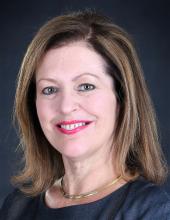This lecture investigates the reception of two classical texts from the perspective of our current fears of apocalypse: Diodorus on the statue of Ozymandias, which inspired Shelley, and the Homeric Iliad, which has come to the fore in fiction, poetry and popular culture in the 21st century. It argues that while some recent receptions have increasingly focused on ancient visions of the obliteration of the human race and its destruction of the natural environment, there is still work to be done in order to update our responses to Greco-Roman antiquity in the light of our most pressing imperatives in the age of ecological disaster.
Professor Hall is a highly distinguished professor at Durham University. She received her D.Phil. from St. Hugh’s College, Oxford in 1988. She is primarily interested in Greek literature, Greek social and intellectual history, Greco-Roman drama and performance culture, class, gender, and ethnicity, as well as working-class reception of classics and historical women classicists. Professor Hall regularly appears on radio and publishes newspaper articles. She has received numerous prizes and awards, among them the Erasmus Prize of European Academy (2015) and a Goodwin Award from the SCS (2015), and a Humboldt Foundation International Research Award (2012). She also works to promote classics in state schools in the UK and has served as a consultant for productions of ancient drama with major British theatre companies. Some of her major publications are: Inventing the Barbarian: Greek Self-Definition through Tragedy (1989), The Theatrical Cast of Athens: Interactions between Ancient Greek Drama & Society. (2006), Adventures with Iphigenia in Tauris: A Cultural History of Euripides’ Black Sea Tragedy (2013), Aristotle’s Way (2018), A People’s History of Classics: Class and Greco-Roman Antiquity in Britain 1689-1939 (2020, with Henry Stead).
This lecture will also be available by Zoom at https://washington.zoom.us/j/98878913708
Attendance at this event is governed by UW’s COVID-19 vaccination and face covering policies.
This event is free and open to the public.
